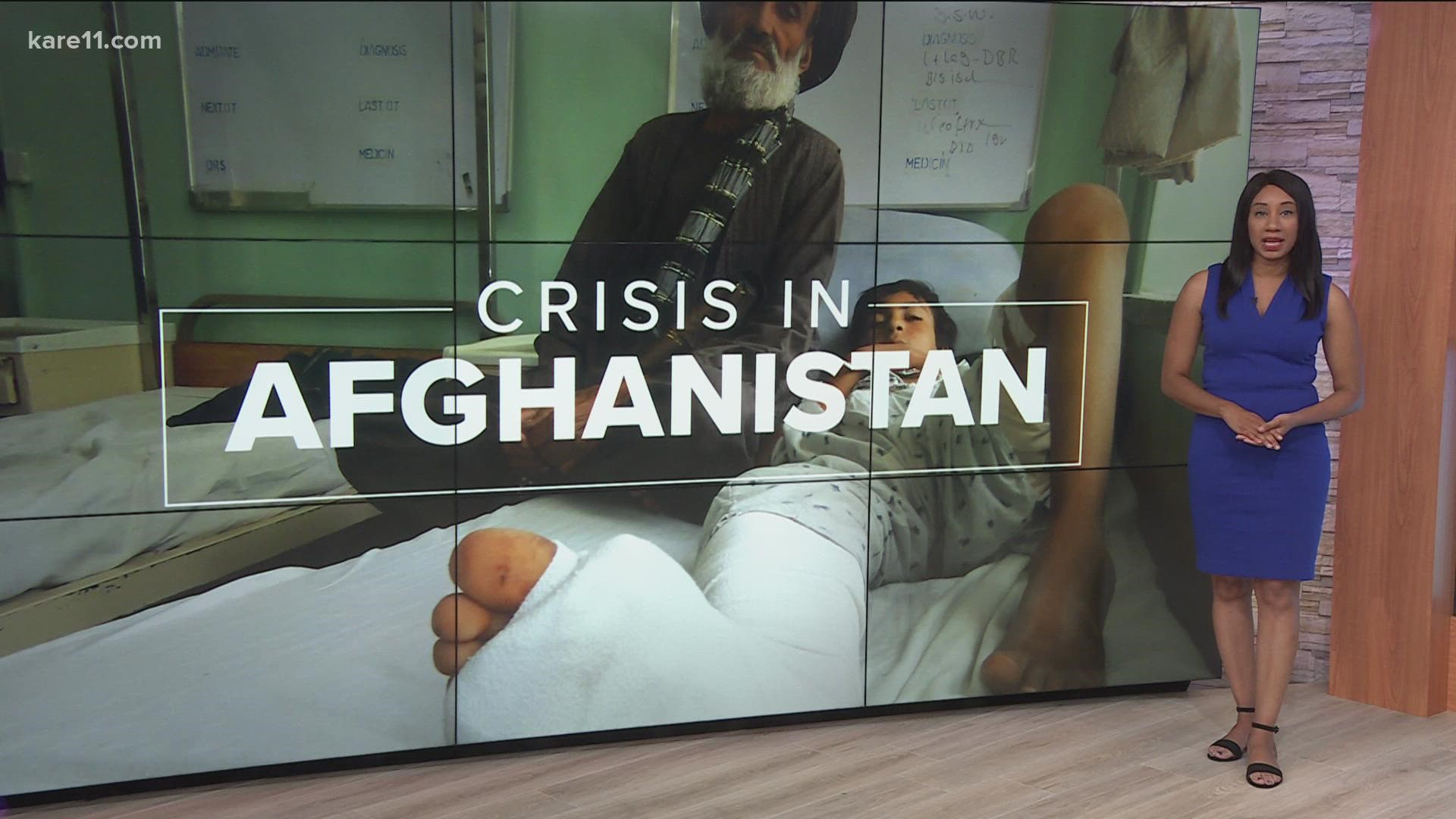MINNEAPOLIS — Albany, Minnesota native, J.P. Lawrence, knows a thing or two about goodbyes.
"I did a lot of goodbyes in the days before we left, and they were all bitter goodbyes,” said Lawrence.
Lawrence had been working in Afghanistan for the past three years as a reporter for Stars and Stripes, but last week, he says, “me and my Afghan coworker went to the Afghan Zoo, we looked at all of these animals and families having a normal fun time, and the more I thought about it, the more I thought the Taliban are picking up steam,” said Lawrence.
In less than a week, the Taliban enforced their rule over the capitol of 5 million people, dethroning the country's Western-backed government, while taking military and political control over Afghanistan. Lawrence says his team was planning to leave at the end of the month, but were forced to evacuate immediately.
"We decided that we have to get out of here," said Lawrence. "We contacted the U.S. State Department, we packed everything up and Saturday we were told we had to get to the embassy, basically now."
As the U.S. military continued evacuation flights, Afghans swarmed the airports, some climbing onto departing planes.
"That airport became a mess, started getting overrun, desperate people got into the airport, trying to get a ticket out before the Taliban quickly took over," he said.
Kathleen Collins, an associate professor of political science at the University of Minnesota, says the Taliban control may undo many of the gains the Afghan people achieved over the last few decades and could be seen as a sign of political failure.
"The images of the U.S. frantically leaving and images of Afghans clinging to planes will be used by global jihadist, for decades to come as a sign of the victory they achieved over U.S. power," said Collins.
While Lawrence is still thinking about those left behind. "We still have an Afghan colleague who is an applicant in the Afghan Special Immigrant Visa (SIV) program, he's very, very worried," said Lawrence.
Those bitter goodbyes are still weighing heavy on his heart. "They weren't goodbyes where you feel happier after, or you feel like something has been closed," he said. "I felt very shameful as I said goodbye to Afghan colleagues and friends. I didn't know how to help them then and how to help them now."
More than 1,000 additional troops have been deployed to Afghanistan. The U.S. is still working to evacuate all American citizens.

